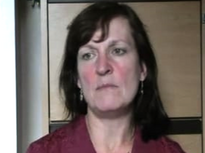Dr Pippa Corrie - Interview 44

Dr Pippa Corrie explains that there are different types of pancreatic cancer and that sometimes chemotherapy is useful. She also talks about the standard chemotherapy for pancreatic cancer and about some of the clinical trials that are taking place in the UK.
Dr Pippa Corrie is a Consultant and Associate Lecturer in Medical Oncology at the Cambridge University Hospitals NHS Foundation Trust (Addenbrooke's Hospital).
More about me...
A consultant oncologist explains that taking part in a clinical trial may give a patient an opportunity to access 'state of the art' treatment.
A consultant oncologist explains that taking part in a clinical trial may give a patient an opportunity to access 'state of the art' treatment.
A consultant oncologist explains why some patients may not have the opportunity to take part in clinical trials.
A consultant oncologist explains why some patients may not have the opportunity to take part in clinical trials.
A consultant explains that people may have little time to come to terms with death and dying, but that the hospital team and the community teams are there to help them.
A consultant explains that people may have little time to come to terms with death and dying, but that the hospital team and the community teams are there to help them.
A consultant explains that people with advanced pancreatic cancer are likely to get many symptoms and various specialists will contribute to their care
A consultant explains that people with advanced pancreatic cancer are likely to get many symptoms and various specialists will contribute to their care
A consultant explains that pain can be treated by specialist teams and that symptoms such as jaundice and ascites (excess fluid) can be treated too.
A consultant explains that pain can be treated by specialist teams and that symptoms such as jaundice and ascites (excess fluid) can be treated too.
A consultant explains what cancer is and why it may develop in any part of the body.
A consultant explains what cancer is and why it may develop in any part of the body.
So cells in the body are continually growing and dying, and they have to be replenished normally. And so the cells normally grow and divide under a very controlled process, but sometimes that controlled process goes wrong and uncontrolled growth leads to cancer. And this can happen in any organ of the body, such as the pancreas, and generate what we know as pancreatic cancer.
A consultant talks about a common type of pancreatic cancer, pancreatic adenocarcinoma, and a less common type, neuroendocrine pancreatic cancer
A consultant talks about a common type of pancreatic cancer, pancreatic adenocarcinoma, and a less common type, neuroendocrine pancreatic cancer
Another one which is less common we call pancreatic neuroendocrine cancer, and this tumour arises from cells that seem to have an hormonal function, sometimes generating the insulin, so you can form things like insulinomas, but sometimes actually arising from other hormonal cells, both in the pancreas and in other parts of the body, whose function we don’t fully understand. But these tumours we call neuroendocrine carcinomas and they tend to have a less aggressive pattern of behaviour. And it’s important to know which type you have because you treat them very differently.

